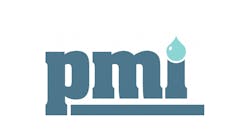PMI Congratulates CA's Adoption of Lead-Testing Requirement
SACRAMENTO, CA – Plumbing Manufacturers International (PMI) congratulates California Gov. Gavin Newsom and the California State Legislature for enacting Assembly Bill (AB) 100 into law. Authored by Assemblymember Chris Holden, AB 100 adopts industry standard NSF/ANSI/CAN 61 2020 as the lead-testing requirement for certified endpoint drinking water devices sold in California.
Developed by the Joint Committee on Drinking Water Additives–System Components facilitated by NSF International, NSF/ANSI/CAN 61 2020 was published last year as the new industry standard for the amount of lead that can leach from plumbing products during testing. The standard reduces the allowable amount of lead leached during product testing five-fold, from the previously allowable Q ≤ 5 micrograms (mcg) to Q ≤ 1 mcg. One mcg is equal to one-millionth of a gram. By comparison, one grain of salt is 60 times larger than 1 mcg.
“It is gratifying to see California adopt the NSF 61 requirement and validate the outstanding work of the committee, said PMI CEO/Executive Director Kerry Stackpole. "The adoption of this industry standard by California marks another innovation milestone in our industry's continual quest to deliver water-efficient and high-performing plumbing products."
Products meeting the NSF/ANSI/CAN 61 2020 standard adopted by California will be marked with "NSF/ANSI/CAN 61: Q ≤ 1" near the product scannable bar code on the packaging; this wording may also be accompanied by the logo of the plumbing product certifier. The NSF 61 standard for manufacturers will become mandatory in California on Jan. 1, 2023, per the new law, and in the rest of the United States and Canada on Jan. 1, 2024. Products meeting the standard are available in the marketplace now. PMI's webpage, How to Purchase a Low-Lead Faucet or Drinking Water Device, helps consumers to identify these compliant products.
Stackpole noted that most lead in drinking water comes from lead service lines linking homes and commercial properties to water mains, not from plumbing fixtures and fittings. PMI supports the infrastructure bill currently before the U.S. Congress; the bill provides $45 billion for removal of lead pipe service lines across the country.
The standard was approved by the Council of Public Health Consultants and ratified by the American National Standards Institute (ANSI) and the Standards Council of Canada (SCC), according to their standards development processes. The joint committee is comprised of balanced representation from the regulatory/public health, manufacturing and consumer sectors.
